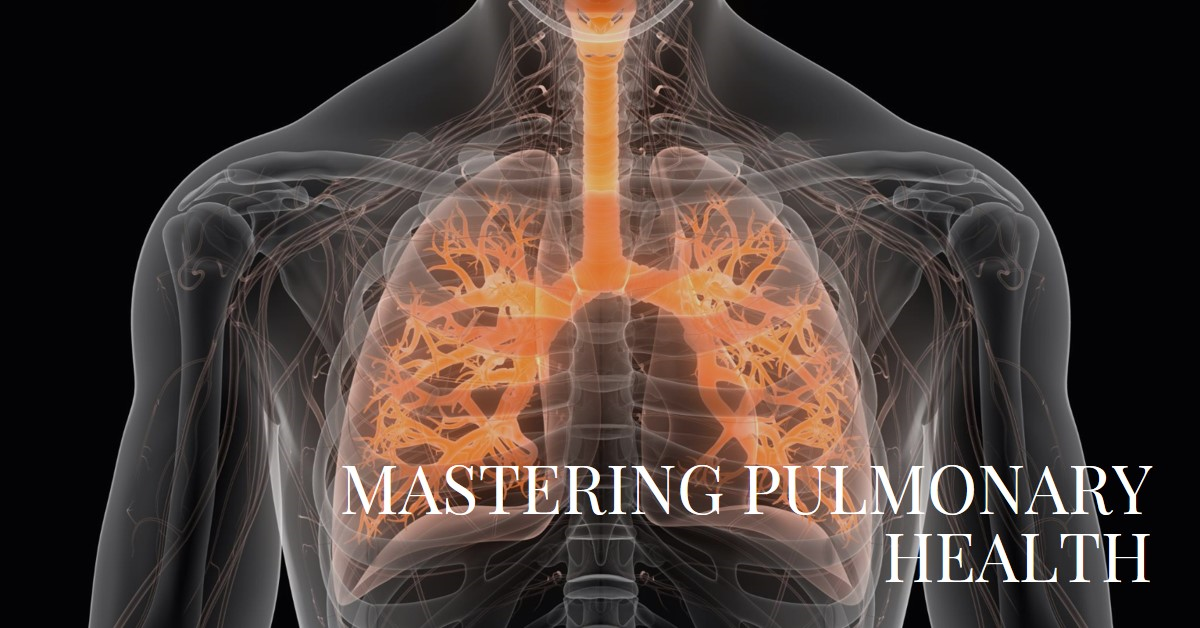Pulmonary Function Tests (PFTs) are essential tools in assessing how well your lungs are functioning. These tests are crucial for diagnosing and monitoring respiratory conditions. Whether you have asthma, chronic obstructive pulmonary disease (COPD), or any other lung condition, PFTs offer valuable insights into your lung health.
What Are Pulmonary Function Tests?
Pulmonary Function Tests are a series of non-invasive tests that measure how well your lungs work. These tests assess lung capacity, volume, gas exchange, and the flow of air in and out of the lungs. They help healthcare professionals determine the severity of lung conditions and the most appropriate treatment.
Types of Pulmonary Function Tests
There are several types of PFTs, each offering unique insights into lung function:
- Spirometry: The most common test, spirometry measures the amount of air a person can exhale forcefully and how quickly they can do it. This is particularly useful for diagnosing conditions like asthma and COPD.
- Lung Volume Measurement: This test determines the total amount of air your lungs can hold. It is helpful for diagnosing restrictive lung diseases, where lung capacity is reduced.
- Gas Diffusion Tests: These tests assess how well your lungs transfer oxygen and carbon dioxide between the bloodstream and the air. Conditions like pulmonary fibrosis may affect this exchange, making the test critical for diagnosis.
- Body Plethysmography: This measures the volume of air in the lungs after a deep breath and how much air remains after exhaling completely. It provides a more comprehensive view of lung function compared to spirometry alone.
- Peak Flow Meter: A simple test that measures how quickly you can exhale. It is often used for monitoring asthma at home.
Why Are Pulmonary Function Tests Important?
PFTs are vital in diagnosing, monitoring, and managing lung diseases. They provide critical data that help doctors:
- Diagnose Respiratory Disorders: Conditions like asthma, COPD, bronchitis, and pulmonary fibrosis can be identified through abnormal PFT results.
- Track Disease Progression: For chronic diseases, PFTs help monitor the effectiveness of treatment and track the progression of the condition.
- Evaluate Treatment Plans: By understanding the severity of lung function impairment, doctors can adjust treatments to meet the patient’s needs.
Who Should Get Pulmonary Function Tests?
PFTs are recommended for individuals with symptoms of respiratory disorders, such as:
- Chronic cough
- Shortness of breath
- Wheezing
- Frequent respiratory infections
They are also essential for people who:
- Smoke or have a history of smoking
- Work in environments with occupational lung hazards
- Have chronic lung conditions such as asthma or COPD
How to Prepare for Pulmonary Function Tests
Preparing for PFTs is relatively simple. Here are some steps you should follow before undergoing the test:
- Avoid Smoking: Refrain from smoking for at least 4-6 hours before the test, as smoking can alter the results.
- Stop Certain Medications: Consult your doctor about stopping bronchodilators or other medications that could affect the test results.
- Wear Comfortable Clothing: Choose loose-fitting clothing that won’t restrict your breathing during the test.
- Avoid Large Meals: Eating a large meal before the test may make it harder to breathe deeply.
What to Expect During a Pulmonary Function Test
Most pulmonary function tests are performed in a doctor’s office or hospital. A technician will guide you through the process, and the tests typically take about 30-60 minutes. You will be asked to breathe into a mouthpiece connected to a machine, which will record your lung function.
Interpreting Pulmonary Function Test Results
Once the test is completed, your healthcare provider will review the results with you. Key measurements include:
- Forced Vital Capacity (FVC): This measures the maximum amount of air you can exhale after a deep breath. Low values may indicate restrictive lung disease.
- Forced Expiratory Volume (FEV1): This measures how much air you can exhale in one second. A lower-than-normal value can indicate obstructive lung diseases like COPD.
- FEV1/FVC Ratio: This ratio helps differentiate between obstructive and restrictive lung diseases.
Normal vs. Abnormal Results
- Normal Results: If your PFT results are within the normal range, your lung function is considered healthy.
- Abnormal Results: Abnormal results may indicate lung diseases such as asthma, COPD, or interstitial lung disease. Your doctor will explain what your specific results mean and discuss treatment options.
Risks and Considerations
Pulmonary function tests are generally safe, but they may cause slight discomfort for some individuals. If you have a severe respiratory condition, you may experience shortness of breath or dizziness during the test. However, complications are rare, and the benefits of the test far outweigh any potential risks.
FAQs About Pulmonary Function Tests
Q1: Are pulmonary function tests painful?
A: No, PFTs are non-invasive and painless. You may feel slightly uncomfortable during the test, especially when asked to exhale forcefully.
Q2: How long do pulmonary function tests take?
A: Most tests take between 30 to 60 minutes, depending on the type and number of tests required.
Q3: Can I eat before a pulmonary function test?
A: It is best to avoid large meals before the test, as a full stomach can make it difficult to breathe deeply.
Q4: Will I get the results immediately?
A: In most cases, the results are available right after the test, but your doctor will need time to interpret them and discuss them with you.
Q5: How often should I get a pulmonary function test?
A: The frequency of PFTs depends on your condition. If you have a chronic lung disease, your doctor may recommend regular tests to monitor your condition.
Conclusion
Pulmonary function tests are a crucial part of diagnosing and managing lung diseases. Whether you’re experiencing symptoms of a respiratory condition or need to monitor a chronic lung disorder, PFTs provide invaluable information. Have you ever considered getting a pulmonary function test to assess your lung health?
Also know General Physician Consultation in Bangalore – Your Guide.
